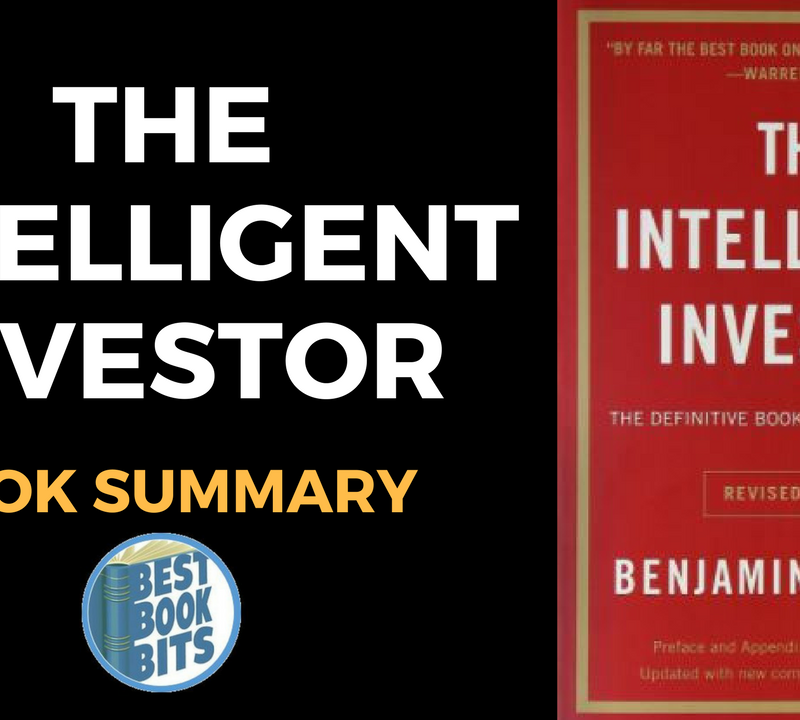♣ CLICK THIS TO STOP TRYING TO ACHIEVE YOUR GOALS BY YOURSELF AND BE COACHED TODAY HERE
♥ CLICK THIS TO DOWNLOAD THIS FREE PDF SUMMARY HERE
♦ CLICK THESE FOR THE FOLLOWING Book | Summaries | Course
YouTube |Spotify | Instagram | Facebook | Newsletter | Website
I Will Teach You To Be Rich is a 2009 personal finance book by Ramit Sethi who writes a blog of the same name
Introduction: Would you rather be sexy or rich?
- The vast majority of young people don’t need a financial adviser to help them get rich. We need to Set up accounts as a reliable no-fee bank and then automate savings and bill payment. We need to know about a few things to invest in, and then we need to let our money grow for thirty years. But that’s not sexy, is it?
- People love to argue minor points, partially because they feel it absolves them from actually having to do anything. You know what? Let the fools debate the details. I decided to learn about money by taking small steps to manage my own spending. Just as you don’t have to be a certified nutritionist to lose weight or automotive engineer to drive a car, you don’t have to know everything about personal finance to be rich.
- An abundance of information can lead to decision paralysis, fancy way of saying that with too much information, we do nothing.
- The single most important thing you can do to be rich is to start early.
- We want out money to grow automatically, in accounts that don’t nickel-and-dime us with fees. And we don’t want to have to become financial experts to get rich.
- The single most important factor to getting rich is getting started, not being the smartest person in the room.
- A lot of your financial problems are caused by one person: you. Instead of blaming “the economy” for your financial situation, you need to focus on what you can change yourself.
- With both food and money, we’re not taking personal responsibility to step up, learn this stuff, and get started. The result is that many of us end up fat, consumption-minded, and poor.
- Because of inflation, you’re actually losing money every day your money is sitting in a bank account.
- The 85 Percent Solution: Getting started is more important than becoming an expert.
- Think about it: 85 percent of the way is far better than 0 percent. Once your money system is good enough – or 85 percent of the way there – you can get on with your life and go do the things you really want to do.
- Spend extravagantly on the things you love, and cut costs mercilessly on the things you don’t.
- I will teach you to be rich is about sensible banking, savings, spending, and investing. I’ll teach you how to set up your accounts to create an automatic financial infrastructure that will run smoothly with minimal intervention.
- Why do want to be rich?
- What does being rich mean to you?
- Most people never spend even ten minutes thinking through what rich means to them.
- What do you want to do with your wealth?
- Simple, long-term investing works.
- There aren’t any secrets to getting rich – it just takes small steps and some discipline, and you can do it with just a little bit of work.
Chapter 1: Optimize Your Credit Cards
- Credit is one of the most vital factors in getting rich, but because it’s hard to wrap out minds around it, we often overlook it entirely.
- Get your credit score at comfor about $15.
- Credit has a far greater impact on your finances than savings a few dollars a day on a cup of coffee.
- One of the key differences between rich people and everyone else is that rich people plan before they need to plan.
- Live on less than you make and spend only when you have cash.
- Just like with gaining weight, most people don’t get into serious credit card debt overnight. Instead, things go wrong little by little until they realize they’ve got a serious problem.
- Credit card debt is almost always manageable if you have a plan and take disciplined steps to reduce it. Yes, it’s hard, but you can get out of debt.
- The key to using credit card effectively is to pay off your credit card in full every month.
- It’s time to make sacrifices to pay off your debt quickly.
- Managing your money has to be a priority if you ever want to be in a better situation than you are today.
- Five steps to ridding yourself of credit card debt.
- Figure out how much debt you have. You wouldn’t believe how many people don’t do this and continue blindly paying off any bills that come in with no strategic plan.
- Decide what to pay off first. Not all debts are created equal. Different cards charge you different interest rates, which can affect what you decide to pay off first.
- Negotiate down the APR.
- Decide where the money to pay off your credit cards will come from.
- Get started. Remember the philosophy behind the 85 percent solution: The goal is not to research every last corner to decide where the money will come from, it’s action. Figure out how much debt you have, decide how you want to pay it down, negotiate your rates, and get started. You can always fine-tune your plan and amount later.
- First, you need the cash flow. To eradicate debt, you need to have enough income every month to meet your regular obligations like groceries, utilities, your mortgage, and the minimum payments on your credit cards, plus enough to throw toward outing the debt away for good.
- It could well be your emotions that got you into this mess of debt in the first place. Leave your emotions at the door and get out of debt the quickest, cheapest, and most efficient way possible.
- Reducing spending and prioritizing debt. Not sexy, but it works.
- Get your credit report and credit score.
Chapter 2: Beat the Banks
- You need both a savings account and a checking account.
- Savings accounts. I would not encourage anyone to use a standard Big Bank savings account. Online savings accounts let you earn dramatically more interest with lower hassle. And because you’ll primarily be sending money there, not withdrawing it, what does it matter if it takes three days to get your money?
- Optimizing your bank accounts. Whether they’re accounts you opened or already had, you need to optimize your checking and savings accounts. This means you shouldn’t be paying fees or minimums. The ley to optimizing an account is talking to an actual customer-service rep, either in person or on the phone.
- Open an online high-interest savings account.
♣ CLICK THIS TO STOP TRYING TO ACHIEVE YOUR GOALS BY YOURSELF AND BE COACHED TODAY HERE
♥ CLICK THIS TO DOWNLOAD THIS FREE PDF SUMMARY HERE
♦ CLICK THESE FOR THE FOLLOWING Book | Summaries | Course
YouTube |Spotify | Instagram | Facebook | Newsletter | Website
Chapter 3: Get Ready to Invest
- Compounding is mankind’s greatest invention because it allows for the reliable, systematic accumulation of wealth.”
- Investing isn’t about picking stocks.
- I believe there are three categories of people: the A’s, the B’s, and the C’s. The As are already managing their money and want to optimize what they’re doing. The Bs, the largest group of people, are not doing anything but could be persuaded to change that if you figure out what motivates them. The Cs are an unwashed mass of people who are a lost cause.
- Sadly, although some people are limited by circumstances, most people will never get rich simply because they have poor attitudes and behaviours about money.
- On average, millionaires invest 20 percent of their household income each year. Their wealth isn’t measured by the amount they make each year, but by how much they’ve saved and invested over time.
- Despite this preoccupation with material goods and a dizzying array of information sources – including 24/7 financial-news channels and dozens of personal-finance magazines – most of us don’t seem to be concerned with managing our financial situation.
- Investing is the single most effective way to get rich. By opening an investment account, you give yourself access to the biggest moneymaking vehicle in the history of the world: the stock market. Setting up an account is an excellent first step toward actually investing, and you don’t have to be rich to open.
Chapter 4: Conscious Spending
- We spend more than we make each year and virtually nothing seems to change our behaviour.
- Spend on what you love. Frugality isn’t about cutting your spending on everything. That approach wouldn’t last two days. Frugality, quite simply, is about choosing the things you love enough to spend extravagantly on – and then cutting costs mercilessly on the things you don’t love.
- The problem is that hardly anyone is deciding what’s important and what’s not, dammit! That’s where the idea of conscious spending comes in.
- Automatically enabling yourself to save, invest, and spend – enjoying it, not feeling guilty about those new jeans, because you’re spending only what you have. You can do it. It takes a plan. And it’s really as simple as that.
- A conscious spending plan involves four major buckets where your money will go: Fixed Costs 50 – 60%, Investments 10%, Savings 5 – 10%, and Guilt-free Spending Money 20 – 30%.
- A good rule of thumb is to invest 10 percent of your take home pay (after taxes, or the amount on your monthly paycheck) for the long term.
- The more aggressively you save now, the more you’ll have later.
- The 60 Percent Solution, which suggested that you spilt your money into simple buckets, with the largest being basic expenses (food, bills, taxes) making 60 percent of your gross income. The remaining 40 percent would be spilt four ways:
- Retirement savings (10 percent)
- Long-term savings (10 percent)
- Short-term savings for irregular expenses (10 percent)
- Fun money (10 percent)
- Saving with a goal – whether it’s tangible like a house intangible like your kid’s education – puts all your decisions into focus.
Chapter 5: Save While Sleeping
- If you want to build wealth over your lifetime, the only sure way to do it is to get your plan on autopilot and make everything that’s financially important in your life automatic…I recommend that people automate a handful of things in their financial lives. You can set it up once in less than an hour and then go back to your life. (David Bach, Author of The Automatic Millionaire)
- Set it and forget it. Automate your finances to focus on long-term goals.
- Keeping an attitude of confidence and prosperity is one of the best financial moves you can make, regardless of what your account balance.
- Gather all your bills together, call the companies, and ask them to switch your bills dates.
- Money exists for a reason – to let you do what you want to do. Yes, it’s true, every dollar you spend now would be worth more later. But living only for tomorrow is now way to live.
Chapter 6: The Myth of Financial Expertise
- All our lives, we’re been taught to defer to experts…but ultimately, expertise is about results.
- In truth, being rich is within your control, not some expert’s. How rich you are depends on the amount you’re able to save and on your investment plan.
- Experts can’t guess where the market is going.
- If you’re not investing, in the long term you’re losing money every day. It actually costs you money to park your money in a savings every day. It actually costs you money to park your money in a savings account as inflation eats into your earnings.
- Don’t succumb to irrational fear and not invest at all. Ironically, the people who do that are the ones who end up without enough money in the end.
- I urge you to combine a classic low-cost investments strategy with automation. Automatic Investing is not some revolutionary technique that I just invented. It’s a simple way of investing in low-cost funds that is recommended by Nobel laureates, billionaire investors such as Warren Buffett, and most academics. It involves spending most of your time choosing how your money will be distributed in your portfolio, picking the investments (this actually takes the least amount of time), and then automating your regular investments so you can sit and watch TV while growing your money.
Chapter 7: Investing Isn’t only for rich people
- If you’re investing for the long term, the best time to make money is when everyone else is getting out of the market.
- Warrant Buffett has said, investors should “be fearful when others are greedy and greedy when other are fearful.”
- When people say investing is too risky, it’s because they don’t what they don’t know.
- Investing is not about picking stocks. The major predictor of your portfolio’s volatility is not due, as most people think, to the individual stocks you pick, but instead your mix of stocks and bonds.
- Your investment plan is more important than your actual investments.
- Since you cannot successfully time the market or select individual stocks, asset allocation should be the major focus of your investment strategy, because it is the only factor affecting your investment risk and return that you can control. (William Bernstein)
- Stocks have been a good way to earn significant returns over the long term, but I discourage you from picking individual stocks, because it’s extremely difficult to choose winning ones on your own. The tricky thing about stocks is you never know what will happen.
- Individual investors like you and me should not invest in individual stocks. Instead, we’ll choose funds, which are collections of stocks (and sometimes, for diversification, bonds). They let you reduce your risk and create a well-balanced portfolio that will let you sleep at night.
- Cash in the safest part of your portfolio, but it offers the lowest reward. If you factor inflation, you actually lose money by holding cash in most accounts.
- The real work in investing comes with creating and investment plan that’s appropriate for your age and comfort level with risk.
- Mutual funds are extremely popular because they allow you to pick one fund, which contains different stocks, and not worry about putting too many eggs in one basket.
- The key to constructing a portfolio is not picking killer stocks! It’s figuring out a balanced asset allocation that will let you ride out storms and slowly grow over time.
- Past performance is no guarantee of future results.
- Risk and reward go hand in hand. The historically high returns of the stock market are impossible without risk; anyone who tells you otherwise is lying.
- The pain people feel from losing $100 is much greater than the pleasure they experience from gaining the same amount. (Gary Belsky and Thomas Gilovich)
Chapter 8: Easy Maintenance
- Investment experts have argued for years that asset allocation is one of the most important factors in determining your success as an investor. In other words, picking the proper mix of investment types in the proper proportions is the key to maximizing your returns while minimizing your risk.
- Fundamentally, there are two ways to get more money. You can earn more or you can spend less. Cutting costs is great, but I personally find increasing earnings to be a lot more fun. Because most of our income comes from work, it’s an excellent place to optimize and earn more.♠ CLICK THIS TO STOP READING BY YOURSELF AND JOIN THE ‘BEST BOOK CLUB’ NOW HERE TO MEET AUTHORS AND NEW FRIENDS
♣ CLICK THIS TO STOP TRYING TO ACHIEVE YOUR GOALS BY YOURSELF AND BE COACHED TODAY HERE
♥ CLICK THIS TO DOWNLOAD THIS FREE PDF SUMMARY HERE
♦ CLICK THESE FOR THE FOLLOWING Book | Summaries | Course
YouTube |Spotify | Instagram | Facebook | Newsletter | Website













